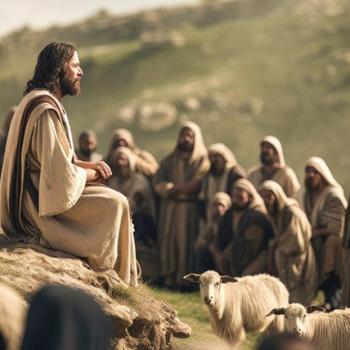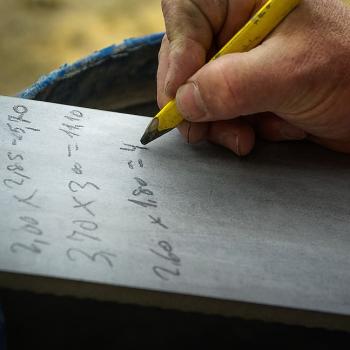This guest post by Robert Strauss is Part 2 of 3 in the series introducing his book “Introducing Story-Strategic Methods“

So it makes sense that one would not abruptly go into Morocco from the West. If one did enter the country, one would want to (re)build relationships, learn language, and (re)earn trust. Gifting Christian New Testaments in a local language would likely not be a first step.
I have heard the details Aslan tells only once. But it’s a familiar story—one we have heard countless times all over the world. Aslan’s anecdote crystalizes the context of modern Christian expansion.
Even if we are aware that a local story already exists, to what degree do we demonstrate respect for it and its role of making meaning and shaping a future in that locale? Respect across cultures requires time, relationships, trust, and the ability to effectively carry on human exchange with people who may think you, the outsider, are strange.
Are We Asleep to Culture?
A key line from Aslan’s story, told in Part 1, is when Malcolm, the well-intentioned young American, says, “Will you please tell this man we were sleeping?”
Malcolm may not have realized he was speaking metaphorically. The train conductor already knew he was “asleep,” asleep to history, asleep to the local story, asleep to damaged relationships. He and his wife were also asleep to an effective approach to cross-cultural ministry.

In intercultural communication, we need to awaken to the cross-cultural context.
Culture is more powerful than we first realized and assumed. A locale’s current culture derives from a region’s shared stories, often ones that have been told and retold for hundreds of years. Locals know the story—both the individual tales that get passed down and the larger narrative that gives poignancy to those tales. Culture, history, and story are inseparable.
Today, some in missiology tend to downplay culture, but this imperils intercultural communication. This tendency itself is a byproduct of culture. In the Global West, we value bottom-line-up-front (BLUF) communication. We prize efficiency. We expedite everything. We seek innovation. We assume everyone is the same. Sometimes, political correctness prevents identifying and understanding true differences. Such values stem from the guilt/innocence pattern of our culture, based on objectified written codes, pervaded by a strong sense of right and wrong.
Don’t Downplay Culture
Honor cultures do not downplay culture. People in the Global East share a strong sense of history, tradition, and shared story. People are high-context communicators. All this takes time. Relationships are prized. Everything is slowed down. Everyone is not the same. The train conductor in Morocco was raised up in an honor pattern of culture. He valued time-honored traditions. He would interpret abruptness as disrespect, even when no disrespect is intended.
Those of us who have been raised up in the Global West need to awaken to culture. Abruptly entering the cross-cultural context is a mistake. Not knowing the local history and its accompanying stories reveals, at best, our ineptness. Attempting to communicate intimately apart from relationships is ill-mannered. Assuming authority as a communicator comes off arrogant. Thinking the biblical story automatically trumps local culture is not only inaccurate anthropology but also bad theology.
Part 3 offers a solution.
REFERENCES
Aslan, Reza. No god but God: The Origin, Evolution, and Future of Islam. New York: Random House, 2011.
Robert Strauss is President of Worldview Resource Group, an organization that equips mission leaders in a story-based worldview approach to cross-cultural ministry. With a Doctorate of Missiology from Biola University’s School of Intercultural Studies, he is also a member of the International Academy for Intercultural Research. He is Lead Faculty in the College of Business and Economics at Regis University in Denver, Colorado.
[1] See page xxiii.












